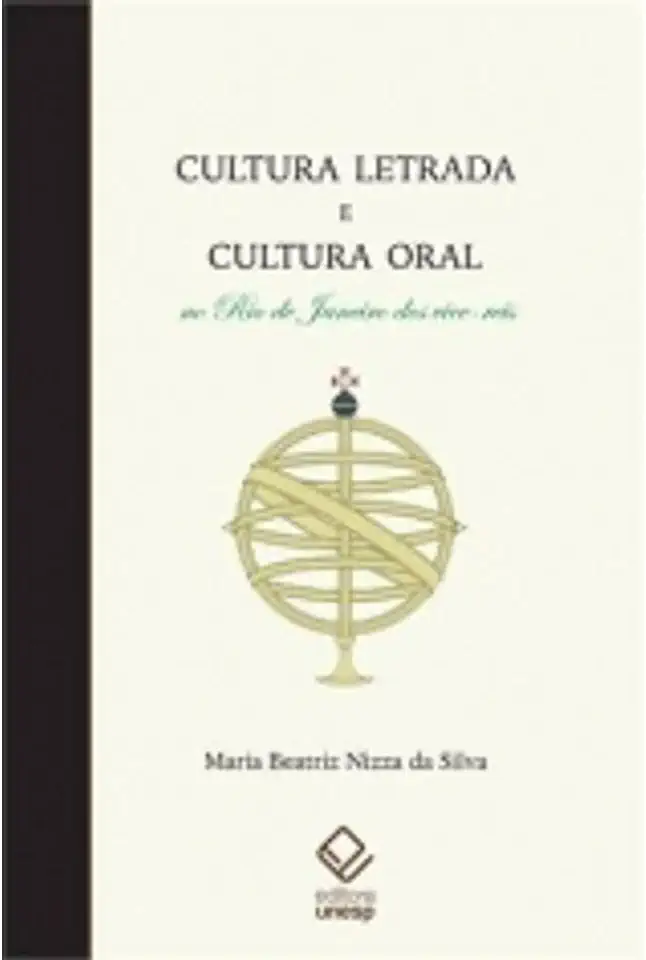
Literate and Oral Culture in Rio de Janeiro of the Viceroys - Maria Beatriz Nizza da Silva
Literate and Oral Culture in Rio de Janeiro of the Viceroys: A Journey into the Heart of Colonial Brazil
A Captivating Exploration of Colonial Brazil's Cultural Landscape
In her groundbreaking work, "Literate and Oral Culture in Rio de Janeiro of the Viceroys," renowned historian Maria Beatriz Nizza da Silva takes readers on an enthralling journey into the heart of colonial Brazil. Through meticulous research and vivid storytelling, Silva paints a vibrant picture of the cultural landscape that shaped the nation's identity during the 18th century.
Unraveling the Tapestry of Colonial Life
Set against the backdrop of Rio de Janeiro, the capital of colonial Brazil, Silva delves into the intricate tapestry of social, intellectual, and artistic life. She masterfully weaves together diverse sources, including manuscripts, sermons, newspapers, and literary works, to reconstruct the daily lives, beliefs, and aspirations of the people who inhabited this vibrant city.
The Clash of Cultures: Literate and Oral Traditions
At the heart of Silva's analysis lies the fascinating interplay between literate and oral traditions. She explores how the rise of literacy and the circulation of printed materials transformed the cultural landscape, while simultaneously acknowledging the enduring power of oral traditions in shaping popular beliefs and practices. This dynamic tension between the written and the spoken word provides a unique lens through which to understand the complexities of colonial society.
Voices from the Past: Exploring Colonial Literature
Silva's work shines a spotlight on the rich literary production of colonial Brazil, shedding light on the intellectual pursuits and artistic expressions of the era. She introduces readers to a diverse range of literary genres, from religious sermons and historical chronicles to poetry and satirical pamphlets. Through these literary works, we gain invaluable insights into the minds and hearts of colonial intellectuals, their struggles, hopes, and dreams.
The Power of Religious Discourse
Religion played a pivotal role in shaping the cultural landscape of colonial Brazil, and Silva dedicates a significant portion of her book to exploring the power of religious discourse. She examines the sermons of prominent preachers, the circulation of religious texts, and the influence of religious imagery in shaping popular beliefs and practices. This exploration highlights the profound impact of religion on the daily lives of colonial Brazilians.
A Vibrant Tapestry of Cultural Expressions
Beyond the realm of literature and religion, Silva delves into the diverse cultural expressions that flourished in colonial Rio de Janeiro. She explores the vibrant world of music, dance, theater, and visual arts, showcasing the remarkable creativity and artistic talent that permeated colonial society. These cultural expressions provide a glimpse into the rich tapestry of everyday life, revealing the joys, sorrows, and aspirations of the people who inhabited this dynamic city.
A Must-Read for History Enthusiasts and Scholars
"Literate and Oral Culture in Rio de Janeiro of the Viceroys" is a monumental work that offers a comprehensive and nuanced understanding of colonial Brazil's cultural landscape. With its captivating narrative, meticulous research, and wealth of insights, this book is a must-read for history enthusiasts, scholars, and anyone fascinated by the complexities of cultural exchange and transformation.
Embark on a Journey of Discovery
Join Maria Beatriz Nizza da Silva on this extraordinary journey into the heart of colonial Brazil. Immerse yourself in the vibrant world of literate and oral cultures, explore the clash of traditions, and discover the voices of the past. "Literate and Oral Culture in Rio de Janeiro of the Viceroys" is an essential addition to your bookshelf, promising an unforgettable exploration of a pivotal era in Brazilian history.
Enjoyed the summary? Discover all the details and take your reading to the next level — [click here to view the book on Amazon!]